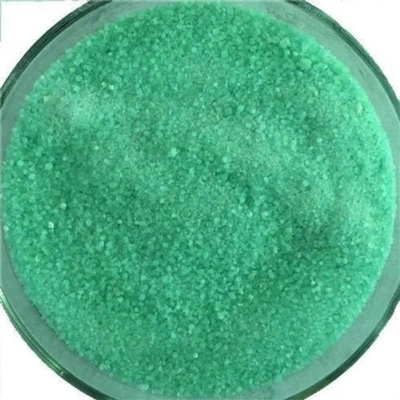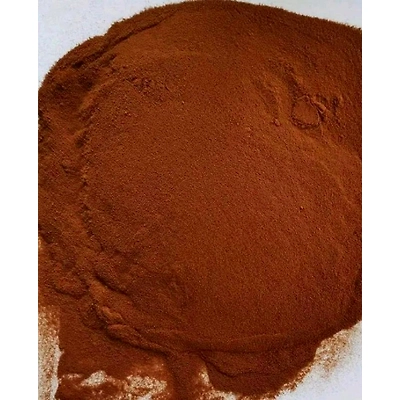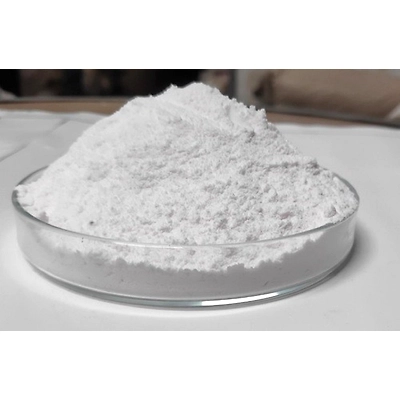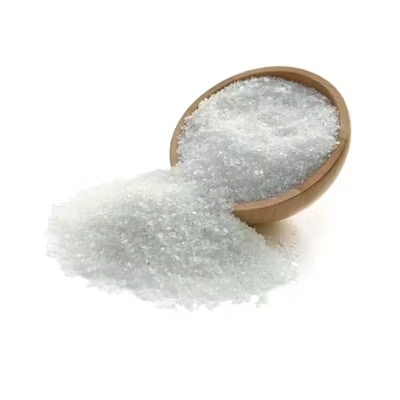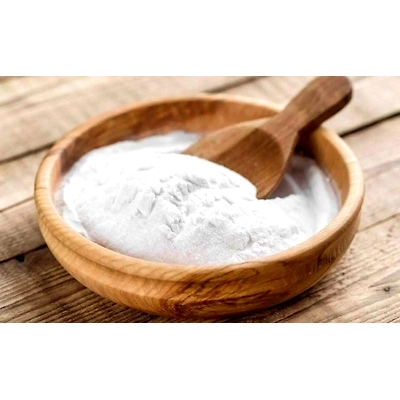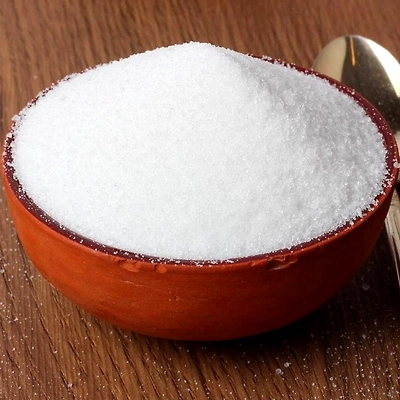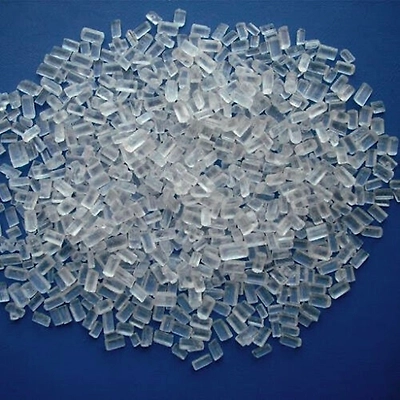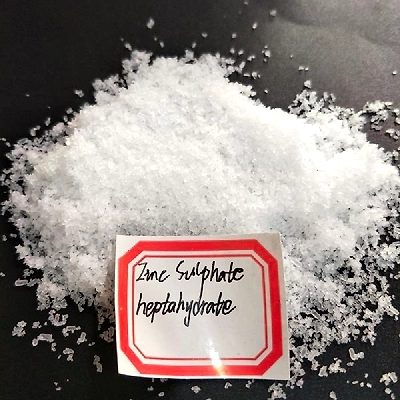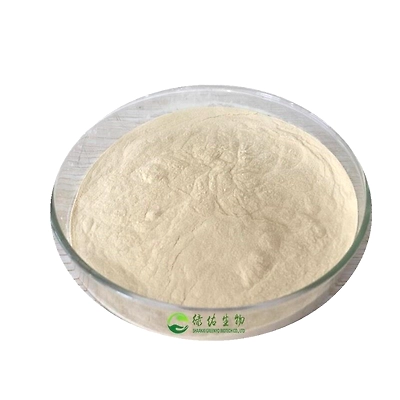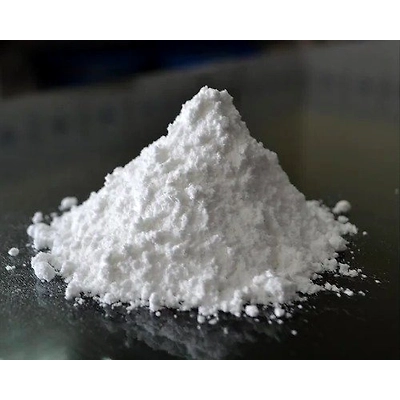Ferrous Sulphate Heptahydrate
Ferrous Sulphate Heptahydrate, also known as iron(II) sulfate heptahydrate or copperas, is a chemical compound with a pale blue-green color in its crystalline form. It is valued for its diverse applications across various industries, including agriculture, water treatment, and as a source of iron in nutritional supplements.
IUPAC Name: Iron(II) Sulfate Heptahydrate
Other Name or Common Name:
Copperas
Green Vitriol
Ferrous Sulfate Heptahydrate
Appearance: Ferrous Sulphate Heptahydrate is typically found as pale blue-green crystals. The heptahydrate form indicates that it contains seven water molecules for each molecule of ferrous sulfate.
Chemical Formula: The chemical formula for Ferrous Sulphate Heptahydrate is FeSO47H2O, representing the presence of seven water molecules in the compound.
Molecular Weight: The molecular weight of Ferrous Sulphate Heptahydrate is approximately 278.01 g/mol.
Applications:
Agriculture: Ferrous Sulphate Heptahydrate is widely used as a soil amendment and a source of iron in agriculture. It corrects iron deficiencies in plants and promotes healthy growth.
Water Treatment: It is employed in water treatment processes to remove or reduce excess levels of phosphates and hydrogen sulfide, improving water quality.
Nutritional Supplements: Ferrous Sulphate Heptahydrate serves as a source of iron in dietary supplements and fortified foods to address iron deficiency anemia.
Dye and Pigment Production: It is used in the production of iron oxide pigments and ink formulations.
Pharmaceuticals: In the pharmaceutical industry, it may be used in the formulation of certain medications.
Wastewater Treatment: Ferrous Sulphate is used for the reduction of chromate in wastewater treatment processes.
Chemical Manufacturing: It has applications in chemical reactions and processes as a reagent or catalyst.
Packing Size: 50 Kg Packing Type: HDPE Bag
Fulvic Acid 80%
Fulvic Acid is a naturally occurring organic acid, part of the humic substance family, found in soil, sediment, and natural organic matter. It is recognized for its role in enhancing plant growth and promoting soil health.
IUPAC Name:Fulvic Acid
Appearance:Fulvic Acid typically appears as a dark brown to black substance, soluble in water.
Applications:
Agriculture: Fulvic Acid is used in agriculture to improve soil quality and plant growth. It enhances nutrient availability and uptake by plants, promotes root development, and increases crop yield.
Soil Health: It plays a vital role in improving soil structure and reducing soil erosion. It helps to retain moisture in the soil and increase its cation exchange capacity.
Fertilizer and Nutrient Delivery: Fulvic Acid is often used as a component in liquid fertilizers and soil conditioners to improve the delivery of nutrients to plants.
Environmental Remediation: In environmental applications, Fulvic Acid is used to remediate soil and water contaminated with heavy metals and other pollutants.
Health and Dietary Supplements: Some dietary supplements contain Fulvic Acid due to its potential health benefits, including its antioxidant properties and potential to support nutrient absorption.
Cosmetics and Skincare: Fulvic Acid is used in some cosmetic and skincare products for its potential skin health benefits.
Animal Feed Additive: In the animal husbandry industry, Fulvic Acid is added to feed as a potential growth promoter and to support the health of livestock.
Packing Size: 25 Kg Packing Type: Paper Bag
Manganese Sulphate Monohydrate
Manganese Sulfate Monohydrate is a chemical compound that contains manganese, sulfur, and water. It is typically found as a pale pink or light brown crystalline solid.
IUPAC Name: Manganese(II) sulfate monohydrate
Other Name or Common Name:Manganese Sulfate
Appearance: Manganese Sulfate Monohydrate appears as pale pink or light brown crystalline solid. The monohydrate form contains one molecule of water per molecule of manganese sulfate.
Chemical Formula: MnSO4H2O
Molecular Weight:169.02 g/mol
Applications:
Agriculture: Manganese Sulfate Monohydrate is widely used as a manganese fertilizer in agriculture. It is applied to soils to correct manganese deficiencies in plants. Manganese is an essential micronutrient for plant growth and development.
Animal Nutrition: It can be used as a dietary supplement in animal nutrition, primarily for livestock, to ensure proper manganese intake, which is necessary for animal health and reproduction.
Chemical Industry: Manganese Sulfate is used in various chemical processes and industrial applications, such as in the production of other manganese compounds, dyes, and pigments.
Battery Manufacturing: In the battery industry, Manganese Sulfate is used as an electrolyte additive in alkaline batteries to enhance their performance.
Micronutrient Fertilizer: Apart from agricultural use, it may be utilized as a micronutrient fertilizer in horticulture and gardening.
Packing Size:50 kg Packing Type: HDPE Bag
Potassium Chloride
Potassium Chloride is a chemical compound with the molecular formula KCl. It is a white crystalline salt that is commonly used in various industrial, agricultural, and medical applications. Potassium Chloride is a vital source of potassium, an essential nutrient for plants, animals, and humans.
Key Features and Uses:
Fertilizer: Potassium Chloride is widely used as a potassium fertilizer in agriculture to improve crop yield and quality. It provides plants with essential potassium nutrients, which are crucial for their growth, root development, and overall health.
Food Additive: In the food industry, Potassium Chloride is used as a low-sodium alternative to table salt (sodium chloride). It is often added to processed foods and snacks as a salt substitute for individuals who are on a low-sodium diet or are concerned about their sodium intake.
Water Treatment: Potassium Chloride is used in water treatment processes, particularly in water softening systems. It helps replace calcium and magnesium ions in hard water with potassium ions, reducing scale buildup and improving the efficiency of appliances.
Medical Applications: Potassium Chloride is used in medical settings as an electrolyte replacement in intravenous fluids. It helps replenish potassium levels in patients who may have low blood potassium levels (hypokalemia) due to various medical conditions.
Chemical Manufacturing: The compound serves as a source of potassium in various chemical reactions and industrial processes. It's used in the production of potassium hydroxide, potassium metal, and other potassium compounds.
Oil and Gas Industry: Potassium Chloride is used in drilling fluids and completion fluids within the oil and gas industry. It helps control the density and rheology of these fluids, aiding in the drilling and extraction processes.
Deicing Agent: Potassium Chloride is used as an environmentally friendly alternative to traditional rock salt (sodium chloride) for deicing roads and walkways in colder climates. It can help melt ice and snow effectively while minimizing damage to vegetation and aquatic ecosystems.
Precautions: While Potassium Chloride is generally considered safe for its intended uses, there are some precautions to keep in mind:
Ingesting large amounts of Potassium Chloride can be harmful, especially for individuals with kidney problems or certain medical conditions.
Direct contact with the compound can irritate the skin and eyes. It's advisable to handle it with care and wear appropriate protective equipment.
Sodium Bicarbonate
Sodium Bicarbonate, commonly known as baking soda, is a white, crystalline powder with a slightly alkaline taste. It is a versatile and widely used chemical compound with a variety of applications in both the household and various industries.
IUPAC Name:Sodium Hydrogen Carbonate
Common Name:
Baking Soda
Sodium Hydrogen Carbonate
Sodium Bicarb
Appearance:Sodium Bicarbonate appears as a white, fine, crystalline powder.
Chemical Formula:NaHCO3
Molecular Weight: 84.01 g/mol.
Applications:
Baking and Culinary Uses: Sodium Bicarbonate is widely used as a leavening agent in baking. It releases carbon dioxide when mixed with acid ingredients, causing dough or batter to rise and become light and fluffy.
Antacid: It is used as an antacid to relieve heartburn, indigestion, and upset stomach by neutralizing excess stomach acid.
Cleaning and Deodorizing: Sodium Bicarbonate is used as a household cleaner and deodorizer. It can remove stains, neutralize odors, and act as a gentle abrasive for cleaning various surfaces.
Personal Care: In personal care products, it is used in toothpaste and oral care products as a mild abrasive and teeth whitener. It's also used in bath products for its skin-soothing properties.
Fire Extinguishers: Sodium Bicarbonate is used as an extinguishing agent in some fire extinguishers, particularly those designed for grease fires.
Medical Applications: It is used in medical applications as an intravenous medication to correct acid-base imbalances and treat certain medical conditions.
Pharmaceuticals: Sodium Bicarbonate is used as an excipient in the pharmaceutical industry for various medications.
Agriculture: In agriculture, Sodium Bicarbonate can be used to adjust the pH of soil or water in certain applications.
Wastewater Treatment: It is used in wastewater treatment to neutralize and remove acidity.
Packing Size: 50 KG
Packing Type: HDPE Bag
Sodium Citrate Dihydrate
Sodium Citrate Dihydrate is a white crystalline powder or granular substance. It is a sodium salt of citric acid and is widely used in various applications, particularly in the food and pharmaceutical industries.
IUPAC Name:Trisodium 2-hydroxypropane-1,2,3-tricarboxylate
Other Name or Common Name:
Tri Sodium Citrate Dihydrate
Sodium Citrate E331
Appearance:Sodium Citrate Dihydrate typically appears as a white crystalline powder.
Chemical Formula:Na3C6H5O72H2O
Molecular Weight:258.07 g/mol.
Applications:
Food and Beverage Industry: Sodium Citrate Dihydrate is used as a food additive (E331) in various food and beverage products, including as a buffering agent, acidity regulator, and emulsifier. It is often used in soft drinks, gel-like sweets, and certain dairy products.
Pharmaceuticals: It is used in the pharmaceutical industry as a buffering and stabilizing agent for liquid medications and as a component in certain medical preparations.
Cosmetics and Personal Care: Sodium Citrate Dihydrate can be found in cosmetics and personal care products for its chelating and buffering properties.
Blood Preservation: In blood banks and medical settings, it is used as an anticoagulant to preserve blood and prevent clotting.
Cleaning Products: Some cleaning products, especially those used for cleaning and descaling coffee machines and dishwashers, may contain Sodium Citrate to prevent mineral buildup.
Laboratory and Research: Sodium Citrate Dihydrate is used in various laboratory and research applications, such as in biochemical assays and reagent formulations.
Detergents: In detergent formulations, it may serve as a builder and water softener.
Packing Size:25 Kg
Packing Type: HDPE Bag
Sodium Thiosulphate Pentahydrate
Sodium Thiosulfate, also known as sodium hyposulfite, is a white crystalline compound. It is widely used in various industrial and photographic applications, as well as in medicine for its ability to neutralize certain chemical reactions.
IUPAC Name:Sodium Thiosulfate
Common Name:
Sodium Hyposulfite
Sodium Thiosulphite
Fixer (in photography)
Appearance:Sodium Thiosulfate typically appears as a white crystalline powder or small crystals. It is odorless.
Chemical Formula:The chemical formula for Sodium Thiosulfate is Na2S2O3, indicating the presence of sodium, sulfur, and oxygen atoms.
Molecular Weight:The molecular weight of Sodium Thiosulfate is approximately 158.11 g/mol.
Applications:
Photography: Sodium Thiosulfate is a key component in photographic processing solutions, where it is used as a fixing agent to remove unexposed silver halide crystals from photographic films and papers.
Water Dechlorination: It is used in water treatment processes to dechlorinate tap water, making it safe for aquatic life and certain industrial processes.
Medical Uses: In medicine, Sodium Thiosulfate is used as an antidote for cyanide poisoning. It works by forming a less toxic compound with cyanide, which can be excreted by the body.
Industrial Processes: It is used in various industrial processes, including as a reducing agent in chemical reactions and as a sulfur source in the production of chemicals like sodium sulfide.
Analytical Chemistry: Sodium Thiosulfate is used in analytical chemistry for titrations and as a standard in various laboratory procedures.
Packing Size: 50 Kg
Packing Type: HDPE Bag
Zinc Sulphate Heptahydrate
Zinc Sulfate Heptahydrate is a chemical compound that contains zinc, sulfur, and oxygen. It is found in the form of a colorless, crystalline powder or granules. The "heptahydrate" designation indicates that it contains seven molecules of water of crystallization.
Appearance: Zinc Sulfate Heptahydrate appears as colorless, crystalline powder or granules.
Chemical Formula: ZnSO4 7H2O
Molecular Weight: 287.54 g/mol
Applications:
Agriculture: Zinc Sulfate Heptahydrate is used in agriculture as a zinc fertilizer to address zinc deficiencies in soils. It is essential for plant growth and is added to soil or applied as a foliar spray.
Pharmaceuticals: In the pharmaceutical industry, it is used as an ingredient in various medications and supplements, particularly those prescribed to address zinc deficiencies.
Water Treatment: It is employed in water treatment processes for coagulation and flocculation to clarify water and remove impurities.
Animal Nutrition: Zinc Sulfate Heptahydrate is used as a dietary supplement for livestock and pets to provide essential zinc nutrition.
Electroplating: It is used in electroplating processes to deposit a layer of zinc onto various metal surfaces, providing corrosion resistance and enhancing aesthetics.
Leather Industry: In the leather industry, it is used in tanning processes to stabilize the leather structure. Packing Size: 50kg Packing Type: HDPE Bag
Xanthan Gum
Xanthan Gum is a natural polysaccharide produced by the fermentation of carbohydrates. It is a white to cream-colored powder that is soluble in water. Xanthan Gum is known for its thickening and stabilizing properties and is widely used in the food, pharmaceutical, and cosmetic industries.
Appearance: Light Yellow Powder
Applications:
Food Industry: Xanthan Gum is used as a food additive, primarily as a thickening and stabilizing agent. It is added to a wide range of food products, including sauces, dressings, soups, and bakery items, to improve texture and prevent ingredient separation.
Pharmaceuticals: In pharmaceuticals, Xanthan Gum is used as a binder and disintegrant in tablet formulations. It helps hold tablets together and facilitates their breakdown when ingested.
Cosmetics and Personal Care: It is used in cosmetics and personal care products such as lotions, creams, and toothpaste to provide texture and viscosity.
Oil and Gas Industry: Xanthan Gum is utilized in the oil and gas industry as a drilling mud additive to increase viscosity and carry drill cuttings to the surface.
Industrial Applications: It is used in various industrial applications as a thickener, stabilizer, and suspension agent in products like paints, adhesives, and cleaning agents. Packing Size: 25kg Packing Type: Bag packing
Zinc Sulphate Monohydrate
Zinc Sulfate Monohydrate is a chemical compound that contains zinc, sulfur, and oxygen. It is commonly found in the form of white, odorless, crystalline powder or granules. The "monohydrate" designation indicates that it contains one molecule of water of crystallization.
Appearance: white Powder
Chemical Formula: ZnSO4 H2O
Molecular Weight:179.47 g/mol
Applications:
Agriculture: Zinc Sulfate Monohydrate is widely used in agriculture as a zinc fertilizer. It provides essential zinc nutrients to crops and corrects zinc deficiency in soils, promoting plant growth and health.
Pharmaceuticals: It is used in the pharmaceutical industry as an ingredient in various medications and supplements. Zinc sulfate supplements are commonly prescribed to address zinc deficiencies.
Water Treatment: In water treatment, it is used for coagulation and flocculation processes to remove impurities and clarify water.
Animal Nutrition: It is used as a dietary supplement for livestock and pets to provide essential zinc nutrition.
Electroplating: Zinc Sulfate Monohydrate is employed in electroplating processes to deposit a layer of zinc onto various metal surfaces, providing corrosion resistance and enhancing aesthetics. Packing Size: 50kg Packing Type: HDPE Bag


